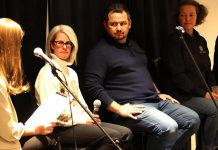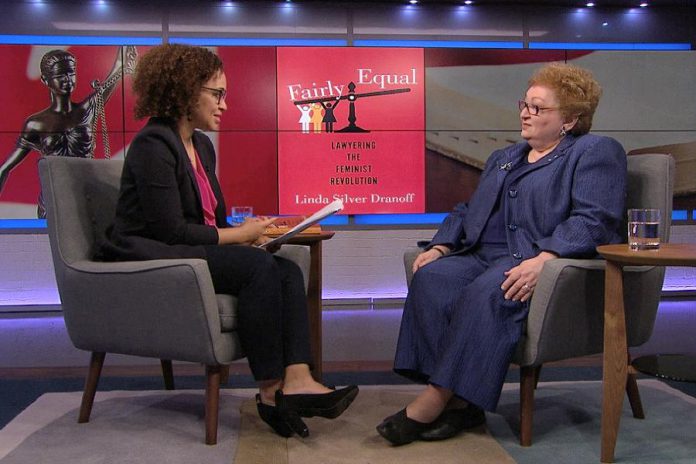
The nascent #MeToo movement and January’s global Women’s March has opened up a huge conversation about women’s rights.
With the World Economic Forum’s 2017 Global Gender Gap Report findings telling us that gender parity is over 200 years away, there has never been a more pressing time for women to advocate for equality.
If it has revealed anything, it’s that women’s issues aren’t a small, insignificant problem.
And while we know that gender parity won’t happen overnight, the good news is that across the globe women are strengthened by messages of female empowerment and defiance and making gains day-by-day.
#MeToo is riding a new wave of feminism and women’s rights, equality and the power dynamics of gender must remain an open dialogue, says Linda Silver Dranoff, a Toronto family lawyer who has contributed to the significant expansion of women’s rights in family law in Canada during her 40-year career.
“I think that feminism is just as needed now as it was in the 1970s,” says Silver Dranoff. “We have found out through the #MeToo movement that there are even more issues that are on the table and they must be dealt with.”
As a ‘second-wave’ feminist lawyer, Silver Dranoff was witness to and a key player in lobbying for the amendment of the Ontario Human Rights Code in 1981 to prohibit sexual harassment in the workplace.
“With sexual harassment, the fact that it is even a prohibition under the Human Rights Code is because of the feminist movement,” she says. “Before that, you had to try and persuade the court that it was a part of sexual discrimination. Now it’s coming right out there and people are dealing with it.”
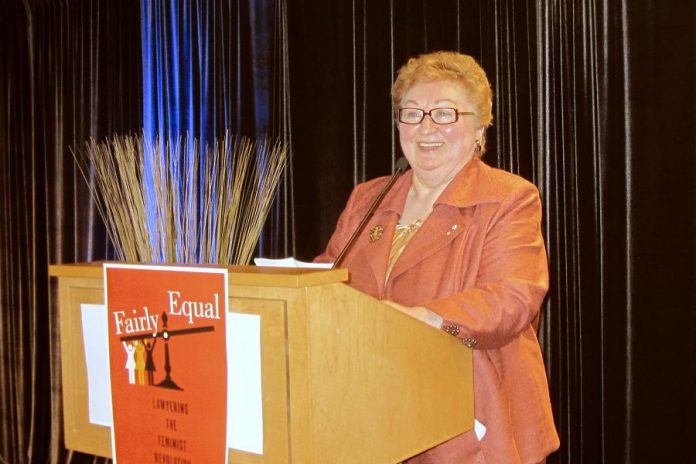
Silver Dranoff herself has played an integral role in combating injustices and winning new rights, especially for women, including family property, pay inequity, sexual harassment, disinherited spouses, child care, violence against women, constitutional issues, and the establishment of a Ministry Responsible for the Status of Women.
“We’ve come a long way, but there is still a long way to go,” she says.
Silver Dranoff is set to bring her empowering message to the International Women’s Day conference in Peterborough on Thursday, March 8th, hosted by Thirteen Moons Wellness.
Making reference to her recent memoir Fairly Equal: Lawyering the Feminist Revolution, she will touch on her personal story, the historical struggle for women’s rights in Canada, with “how to” pointers on activism.
Even with many hard-won gains of the first and second wave feminist movements, many can argue little has changed when it comes to issues affecting women in the 21st century.
Reproductive rights are still under attack, women continue to be sexually and physically assaulted, families struggle to access affordable child care programs and facilities, there remains a lack of representation across governmental and corporate bodies, and women make less than men for equal work.
Silver Dranoff says that women of today’s generation assume that their rights are indelible, so they haven’t thought of — or planned for — a time when those rights might be taken away.
“Some feel like we don’t need feminism anymore and part of that is younger women don’t really know what happened years ago. They take certain things we have now — benefits of the law — for granted.
“Women have to understand how we got to where we are today, what women in the women’s movement did to achieve the advances that we have so far, the risks to them, and how easily it can be taken away … how fragile they are if women don’t pay attention and stay organized. We have to remain vigilant about our rights.”
Silver Dranoff came into her feminist destiny in 1957, both as an academic and as an activist.
The experience that spearheaded her desire to get involved in the feminism movement and raised her awareness of the difficulties that women encountered was in November 1957, during her first-year studies at University of Toronto.
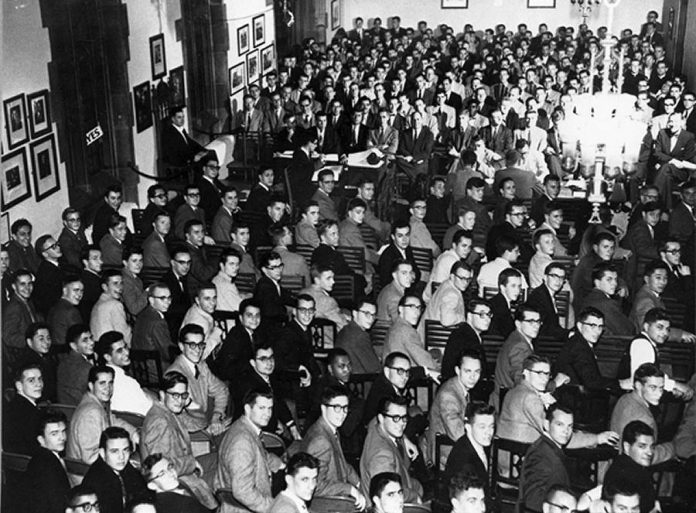
She was one of 20 female students who formed a picket line and “raised a big ruckus” outside of the university’s Hart House to protest the facility’s exclusion of women to a high-profile debate between future US president John F. Kennedy and Stephen Lewis, then the university’s leading speaker and debater.
Armed with signs illustrated with the words “Unfair” and “Equal Rights for Women,” the small but mighty protest didn’t get the students welcomed into the Kennedy/Lewis debate, but it did make the local papers.
“I think that was the beginning of my feelings about working for equality,” says Silver Dranoff.
In 1969, as mature student and a single mother, she decided to pursue law — an industry heavily dominated by males at the time. She was one of only 14 women entering Toronto’s Osgoode Hall Law School.
It was her law school education that honed her feminist instincts.
“I inherently have a sense of social justice and I felt that, as a lawyer, I could help people achieve fairness for themselves. It was when I graduated from law school and having learned about family law, that I realized women’s rights under the law were really meagre; how women did not share property rights after divorce, how women got very little support; even child support was faltering.”
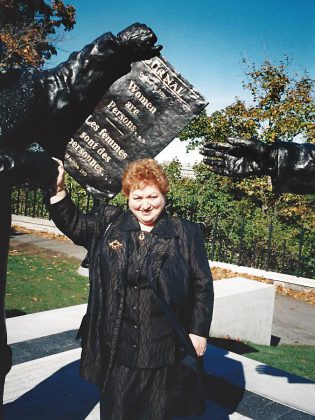
Though not a household name, Silver Dranoff’s many accomplishments have earned her some much deserved fame within the legal industry and the women’s movement in Canada.
Most notably, she represented the interests of the women of Ontario in the first Supreme Court of Canada case to deal with spousal equality, paving the way for all wives to enjoy their rightful share of family investments, and expanded spousal support rights, taking into account benefits, bonuses, and changes in the cost-of-living.
She was also the driver behind lobbying for equal sharing of family property for divorced and widowed spouses in Ontario, resulting in the Family Law Act 1986.
For 25 years, she was Chatelaine magazine’s legal columnist, keeping readers up-to-date on legal issues through her “Ask a Lawyer” column. She has been appointed to the Order of Canada, and honoured many times including a Governor General’s Award in Commemoration of the Persons Case.
The conclusion to the Silver Dranoff’s memoir is suitably called “Over to You.” This is a passing of the torch as she reminds the us that there is still so much to do.
“Remain vigilant to ensure that the advances my generation made are not taken away from you,” she writes. “Be aware of the areas that still require attention, and do what you can to be agents of further change… I encourage those who follow us to do the same, to never ask ‘What can one person do?’ but rather to say, ‘This is what needs doing, and this is what I will do about it.'”
If want to hear Silver Dranoff’s keynote at the International Women’s Day Conference Peterborough, register now as tickets are close to sold out! For more information about the conference and to register, visit www.iwdptbo.ca.
VIDEO: TVO interview with Linda Silver Dranoff





